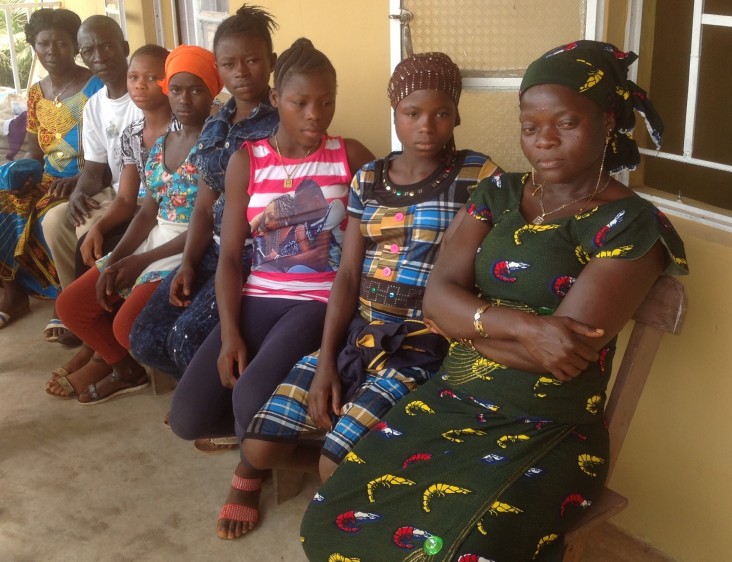
June 2017—Women in Lowoma village, a remote chiefdom in Kenema district, eastern Sierra Leone, are among the poorest in the country. Their most important means of generating family and community income include petty trading and peasant farming.
Hawa Jaward, 38, is married and the mother of seven children—three boys and four girls. Her husband is a petty trader who, like most of the men in the community, finds it difficult to make ends meet with his meager earnings. He cannot pay his children’s school fees or even provide enough food for the family.
In September 2014, USAID launched the Women Empowered for Leadership and Development (WELD) project to increase women’s social, political and economic rights in Sierra Leone. One of the project’s components provides empowerment and entrepreneurship training to women willing to join savings groups that are established afterwards.
In 2015, Jaward participated in empowerment and entrepreneurship training sessions organized by the project in Lowoma and joined one of the five savings groups that were set up in the village. Her motivation and dedication were so high that she was selected by her group members as president of the Lowoma Savings and Loan Development Association, which is today composed of 10 different groups and 250 members altogether.
To date, the project has established a total of 212 savings groups and trained 210 female entrepreneurs and small business owners in the seven targeted districts: Bombali, Kailahun, Kenema, Koinadugu, Kono, Port Loko and Tonkolili.
The savings group is a simple financial intermediation model where members of a group contribute an agreed minimum amount of savings during weekly meetings. The funds are then loaned out to members based on demand. This goes on for a period of 12 months, when lending stops and outstanding loans are repaid in preparation for distributing the interest earned to members. The groups share the income generated over the cycle, but retain the savings.
In almost two years of applying the skills learned from the USAID training sessions, the Lowoma association raised 84 million leones ($11,200).
The Government of Sierra Leone recently removed subsidies from petroleum products, resulting in an increased transport fare across the country. Jaward and her savings group members realized that all the profit generated from their petty trading was consumed by the transport fare to move their commodities to and from communities.
To address the challenge, the association procured a minivan for 36 million leones ($4,800) for group members and other community members to move their goods to and from markets in Kenema and other districts. While they still have to pay a flat transport fee, they no longer pay a fee for their commodities, calculated by weight, as they did when they previously used local trucks to move their goods.
The minivan not only saves them money, but it generates income as well when other petty traders use the van to transport their goods. They not only pay the transport fee, but are charged for their goods as well.
Part of the income generated from the minivan is used to pay school tuition and exam fees for more than 50 children of group members. The exams allow the students to gain admission to junior secondary and secondary school as well as college. Jaward and other women have also generated enough money from the savings groups to set up or improve businesses for their husbands.
Savings groups set up by the USAID project have raised a total of $102,000 in the seven targeted districts since 2015.
“Thanks to this WELD project, our children are all in school and their needs are catered for. Life in our community is also getting better,” said Jaward.
The Women Empowered for Leadership and Development project, which ends in September 2017, has reached out to more than 3 million Sierra Leoneans about behavior change and women’s empowerment. To date, hundreds of women entrepreneurs and political aspirants have benefited from training, and thousands have received loans from savings groups established under the program. In addition, 88 paramount chiefs and seven district officers have benefited from forums on how traditional leaders can promote women’s participation in governance at the chiefdom and community levels.
LINKS
Follow @USAIDWestAfrica, on Facebook







Comment
Make a general inquiry or suggest an improvement.